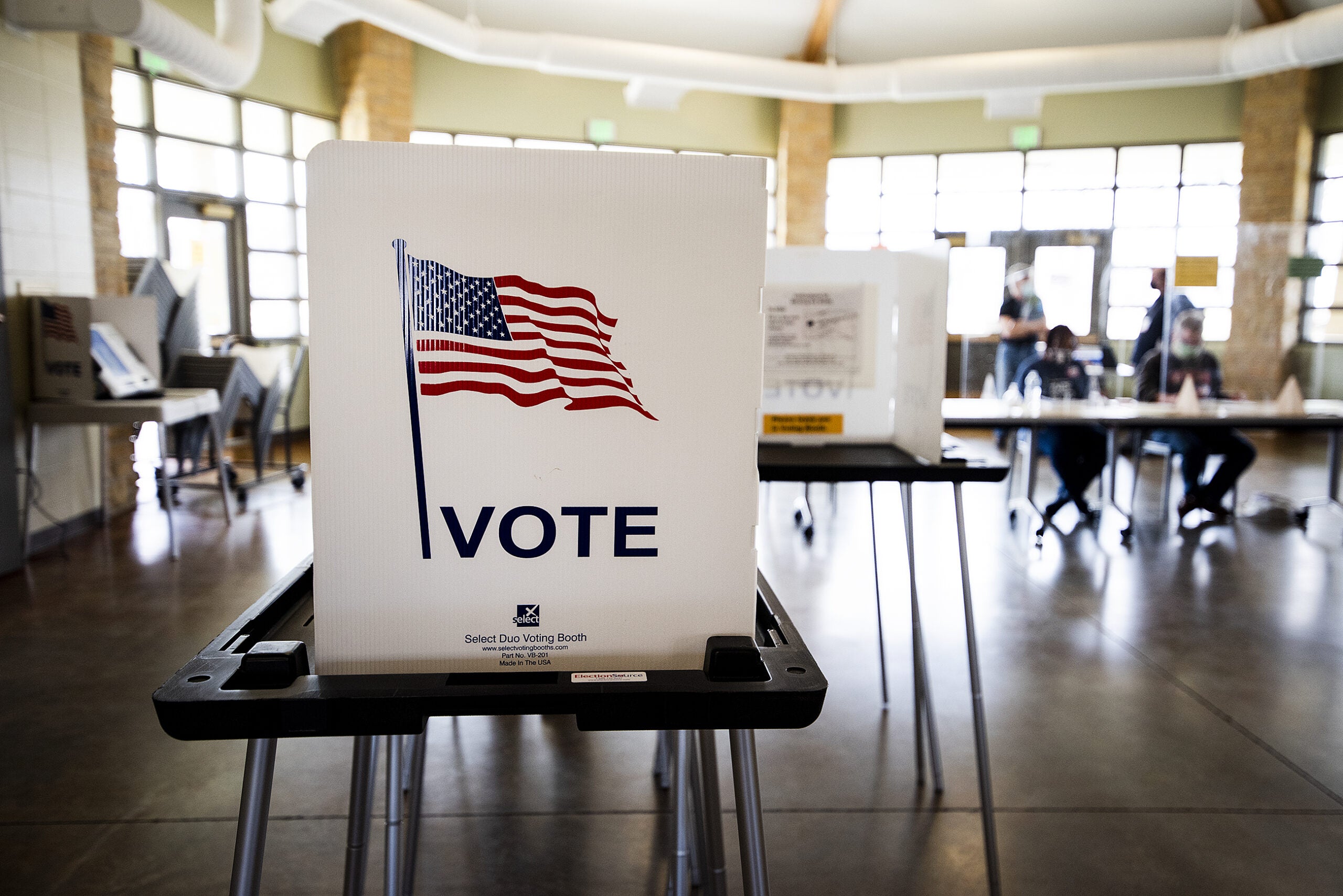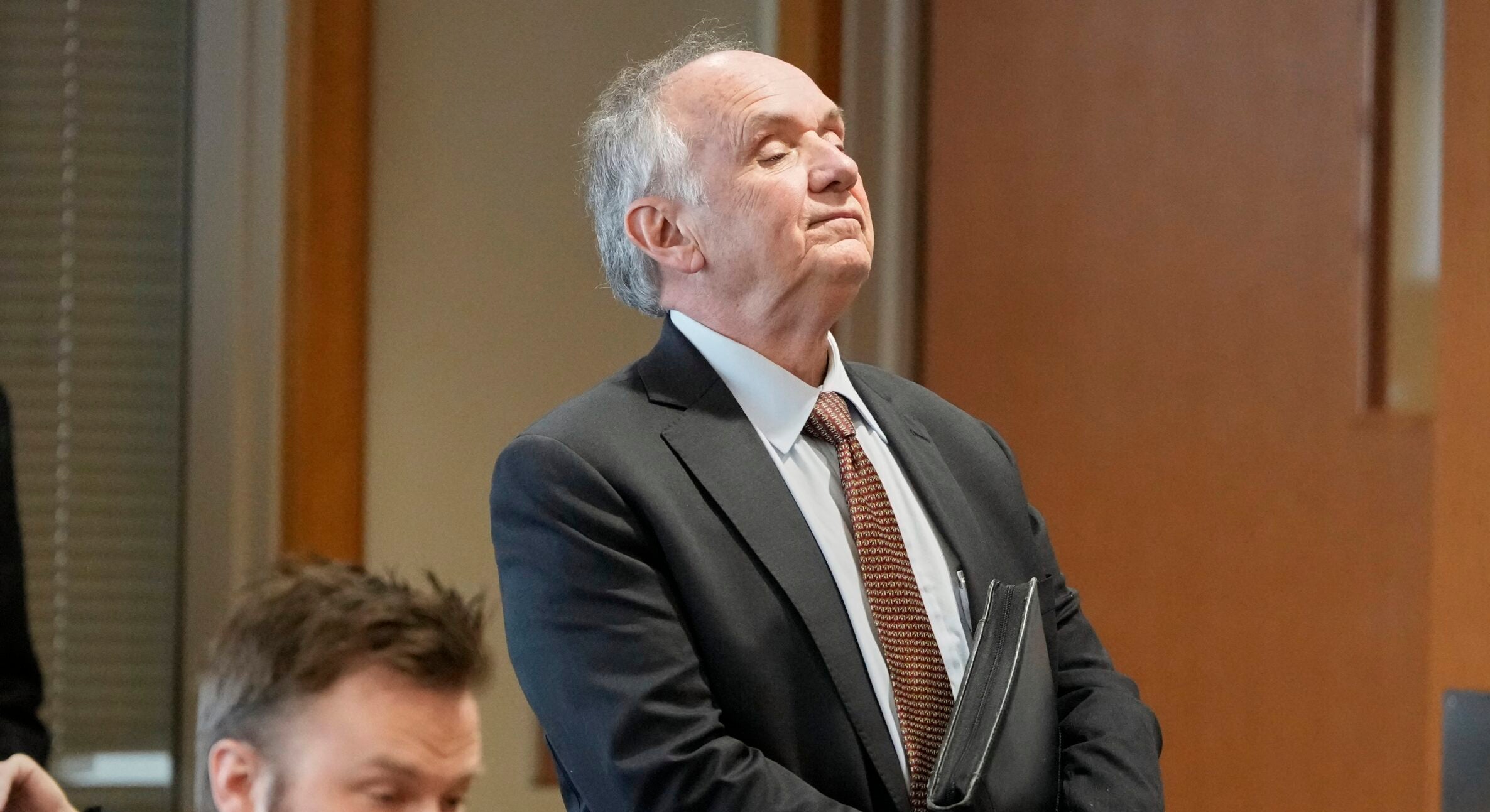Another judge has rejected a challenge of the private election grants given to Wisconsin communities ahead of the 2020 election, saying there’s no evidence they violated any laws.
Dane County Judge Stephen Ehlke issued his ruling from the bench on Wednesday, siding with Madison Mayor Satya Rhodes-Conway and City Clerk Maribeth Witzel-Behl in a challenge brought by the Thomas More Society, a Chicago-based conservative law firm.
The Thomas More Society complaint alleged Rhodes-Conway and Witzel-Behl violated a state law prohibiting election bribery when they accepted grants from the Center for Tech and Civic Life, or CTCL, a group funded by Facebook founder Mark Zuckerberg. The CTCL spent hundreds of millions of dollars on grants to administer elections around the country during the COVID-19 pandemic, including several million in Wisconsin.
News with a little more humanity
WPR’s “Wisconsin Today” newsletter keeps you connected to the state you love without feeling overwhelmed. No paywall. No agenda. No corporate filter.
Hundreds of Wisconsin municipalities received a share of the funding, although the bulk was spent on the cities of Milwaukee, Madison, Green Bay, Racine and Kenosha. The Thomas More Society argued that because those cities vote overwhelmingly Democratic, the grant funds amounted to bribery from the CTCL.
Ehlke rejected that argument, saying plaintiffs had presented no proof that the funds were used for anything but public health safety measures, public information efforts and polling expenses.
“The fact that Madison received more funds is driven by the fact that Madison is the second-largest city in the state,” Ehlke said.
The case before Ehlke originated as a complaint before the bipartisan Wisconsin Elections Commission, which rejected it. Thomas More Society attorney Erick Kaardal has brought similar complaints against other Wisconsin cities without success.
Kaardal was also the lead attorney in a federal lawsuit challenging the CTCL grants before the 2020 election. That case, which was brought on behalf of a group of Republicans called The Wisconsin Voters Alliance, was rejected by U.S. District Judge William Griesbach.
Griesbach’s ruling, handed down in October of 2020, noted that nothing in state law prohibited the CTCL from awarding grants to Wisconsin cities, a finding Ehlke referenced Wednesday.
Ehlke also noted that the state Legislature, which is run by large Republican majorities, passed bills that would ban private election grants.
“Quite obviously, the Legislature introduced this bill because nothing in existing Wisconsin law prohibited these things,” Ehlke said.
Democratic Gov. Tony Evers vetoed GOP bills that would have banned private election grants, once in 2021 and a second time this year. GOP lawmakers have also passed a resolution that would amend the Wisconsin Constitution to ban private grants to run elections, although an identical version of that plan would have to pass the Legislature next year and be approved by voters statewide to become law.
Former Supreme Court Justice Michael Gableman, the special counsel in a Republican-ordered investigation of the 2020 election, worked closely with Kaardal on a report that criticized the election grants, repeatedly referring to the largest cities that accepted them as “the Zuckerberg 5.” Gableman also asserted that lawmakers should consider decertifying the 2020 election results, a move election law experts have said is impossible.
Mayor Rhodes-Conway issued a written statement celebrating Ehlke’s ruling, noting that courts across the country had rejected similar challenges.
“Government should be helping people to vote, not constantly throwing up more roadblocks to participating in our democracy,” Rhodes-Conway said. “We appreciate the courts recognizing, again, that the 2020 election was conducted properly, and that it is over.”
Wisconsin Public Radio, © Copyright 2026, Board of Regents of the University of Wisconsin System and Wisconsin Educational Communications Board.




